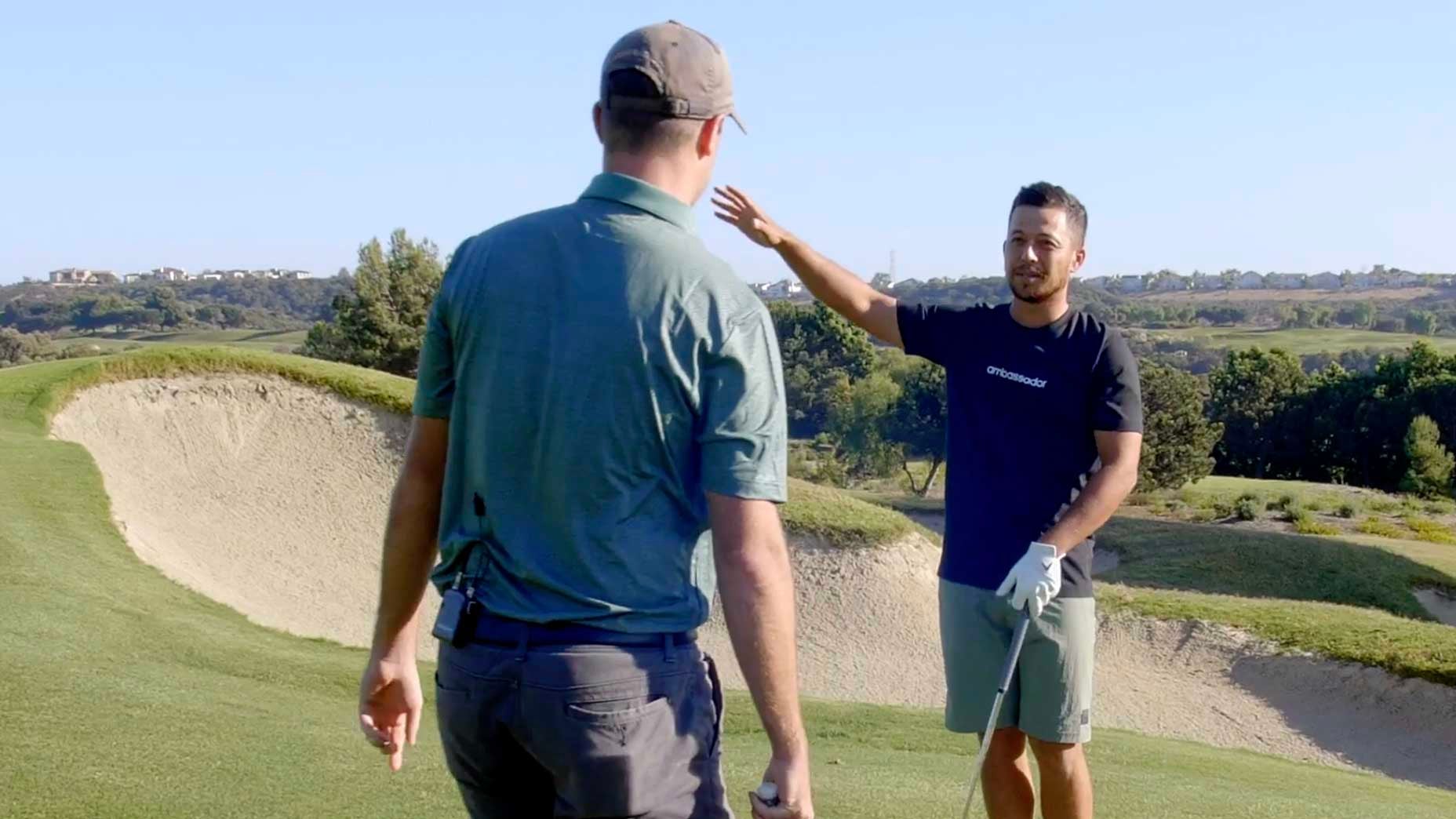Welcome to Pros Teaching Joes, a new game improvement franchise where the best players in the game share their secrets with a few of the joes from the GOLF.com offices.
Us amateurs have a tendency to overcomplicate things, and Xander Schauffele sees it all the time. The No. 4 player in the world is constantly asked for tips in pro-ams. He’s asked for immediate clarity on this vexing game from strangers he just met. For most pros, it leads to cliches about one fail-safe move everyone needs to make, but Schauffele actually prefers to use pages out of his own playbook.
When it comes to his short game, every shot falls into two buckets:
a) Short, punchy and spinny
b) Long, soft and brushy
Depending on the lie, the grain of the fairway, the length of the rough, the location of the pin, etc., Schauffele is starting with either Shot 1 or Shot 2. It’s this,or it’s that. Simplicity.
The adjectives he chooses might not be perfectly intuitive to the viewer at home, but that’s what he thinks about when sizing up shots in the 15 to 30 yards range. And that’s exactly where we stood when they pressed record on the cameras during an Adidas content shoot day in September. The red light came on, I chunked his 60-degree wedge into the turf and Xander sprang into motion. “Okay, so we’ve got a lot of issues already,” he said, letting me down easy. “I see this with a lot of amateurs. Fear kicks in and you get scared to hit the ball hard.”
He wasn’t wrong. I was stuck in a chamber of complexity. Do I need a spinny shot that skirts along the ground and runs out? Or the spinny shot that bounces twice and checks to a halt? How about the provocative flop shot that lands and sits near the hole? Is this even the correct wedge to use? Visions swirled in my head near the green. There’s the perfect chip that nestles up to tap-in range, but also the horrid chunk that might just lead to another horrid chunk. You can’t derive any short game feel from that headspace.
Schauffele knows how complex short game shots can be. He established his This or That approach when he was struggling with his short game on the Korn Ferry Tour. And since graduating to the big leagues, he studied Phil Mickelson‘s prowess — they played many a money game during the Covid shutdown in May — but realized you don’t need all the shots to play good golf, like Mickelson might suggest. Sometimes you need just a few sound, reliable ones.
For me, per Xander, the low, spinny, punchy shot should become Ol’ Reliable No. 1 (which you can check out in the video above). That implies plenty of practice, to be sure, but also better (read: safer) ball position. “If you’re going to stab at it, you better hit the back of the ball,” Schauffele said.
From there, the actionable swing thought is simple, too: Return the hands to where they came from. If your hands start in front of the clubhead — which they should — return them to that exact position during the swing. And to drill that hands-leading contact into my game, Xander went the counter-intuitive route by placing the ball so far back in my stance it was no longer in my stance. It was outside my back foot.
As strange as it felt to hit a ball that was behind me, you’d better believe we made ball-first contact. For someone who has occasionally duffed multiple chips only to blade the next one over the green, it was plenty encouraging.
The Two-Shot Schauffele mentality might be the most achievable tip a pro can provide. Groove your two shots and memorize them so no more indecision creeps in just off the green. It provides clarity in moments where many amateurs can get lost in the process. We know a lot about this game; just enough to do it right and more than enough to do it wrong.
Schauffele himself has never had a short-game lesson, which was surprising to hear. But there’s a very simple lesson behind that, too. “When you learn it yourself, you gain way more confidence than when someone else is showing you how to do it,” he said. All it meant was I have plenty of work ahead of me developing Ol’ Reliable No. 2.
